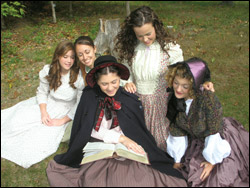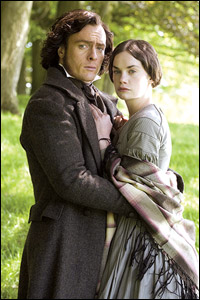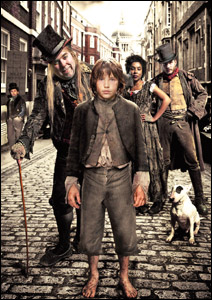Waiting for a Bildungsroman
 Have
you ever read a Bildungsroman? I am sure you have, whether it was in
English or Sinhala. A Bildungsroman is a coming-of-age novel. In it, the
author presents the psychological, moral and social shaping of the
personality of a character, usually the protagonist. The genre arose
during the German Enlightenment. The German term Bildungsroman was
coined by Johann Carl Simon Morgenstern in 1820. Have
you ever read a Bildungsroman? I am sure you have, whether it was in
English or Sinhala. A Bildungsroman is a coming-of-age novel. In it, the
author presents the psychological, moral and social shaping of the
personality of a character, usually the protagonist. The genre arose
during the German Enlightenment. The German term Bildungsroman was
coined by Johann Carl Simon Morgenstern in 1820.
|
What is Bildungsroman? |
| A
Bildungsroman is a coming-of-age novel. In it, the author
presents the psychological, moral and social shaping of the
personality of a character, usually the protagonist. The genre
arose during the German Enlightenment. The German term
Bildungsroman was coined by Johann Carl Simon Morgenstern in
1820. |
A Bildungsroman novel typically follows a young character from
innocence to self-awareness and emotional development. My favourite
example for a Bildungsroman is Martin Wickramasingha’s ‘Madol Duwa’.
Upali Giniwella and his servant boy Jinna end up on an island having run
away from his father and stepmother. There they learn to live on their
own, battle various intruders, and eventually become successful
businessmen selling vegetables in the area.
Although many of Bildungsroman novels follow a basic template, there
can be much individuation. The framework usually begins with the
introduction of a smart and emotionally sensitive young person at home
who then exits into the world where he or she faces conflicts and tests
of character before discovering a proper place in the larger scheme of
things.
|

Little Women |
In Madol Duwa, Wickramasinghe presents a stretch of incidents which
cause Upali and Jinna to run away from their home. Very often the main
character must journey back to the home to prove his worth by showing he
was capable of maturity.
Such as Upali, the young hero gets the opportunity to visit his home
as a young man and help his ill father and step mother. Some novels end
more tragically with the death of the hero, sometimes even before he is
able fulfil his great promise.
Bildungsroman novels might well be said to focus on the issue of the
education of the protagonist, but that is not meant to imply traditional
schooling. At this point the popular novels ‘Pichcha Mala’ and ‘Araliya
Mal Aramaya’ of veteran writer Jayasena Jayakody come to my mind. The
protagonist of both novels is Rahula, a Buddhist monk. Novels depict how
Rev.
Rahula exists in today’s tumultuous society. While he gets free from
all the worldly desires, he manages to make free the others who have
highly involved with them. Eventually people who went against Rev Rahula
become more mature minded and mentally advanced individuals.
|

Jane Eyre |

Oliver Twist |
|
Bildungsroman novels |
* Charlotte
Bronte’s ‘Jane Eyre’
* Charles Dickens’s ‘Great Expectations’ and ‘Oliver Twist’
* Jane Austin’s ‘Emma’, Louisa Mary Alcott’s ‘Little Women’
* Harper Lee’s controversial novel ‘To Kill a Mocking Bird’
|
In keeping with the theme of education, it is very rare for a
protagonist in a Bildungsroman novel to be unintelligent. He may be
naïve and uninformed, but he will almost certainly have a sharp mind,
and usually a definite ability.
A bildungsroman is literally and figuratively a novel about the
development of the self. The protagonist must work his way through a
confusing maze that offers alternative choices at every turn; it is part
of the theme that he must gradually achieve maturity as a result of
having made bad choices, but learning from them.
Until the postmodern era of this kind of novel, the world that was
portrayed in them generally was assumed to be filled with universal
truths. Before Modernism, that typically meant achieving and accepting
the ideal of middle class virtues. Modernism exploded that and
introduced the rejection of those very same values.
In Sri Lankan literary canon, Bildungsroman is described in other
words like ‘adventure novel’ or categorized under children’s literature.
Up to my knowledge this stream of literature is not taught in Sri Lankan
Universities under Sinhala or English degree courses. Reading high grade
literature is not a best practice in achieving maturity in Sri Lanka.
Instead people flock around TVs watching birth of stars. They vote to
‘develop’ other individuals other than developing themselves. |



